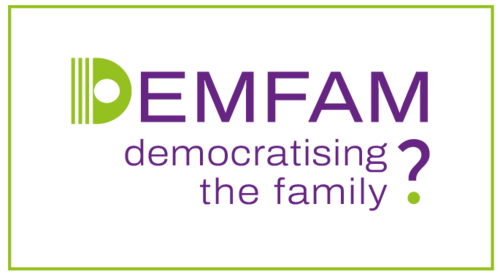Intensified Regulation
The equalisation of parental rights, and the understanding of children as individual subjects, whose rights need to be upheld even against the interest of one or both of their parents has posed new challenges for law and policy makers. How to settle conflict among parties with equal legal claims? Legislators reacted with the creation of specialised family courts, which would settle custody litigations for the increasing numbers of children being raised outside marriage. Co-parenting was legally acknowledged first in the form of shared legal custody (SLC) among unmarried parents, and later as shared physical custody (SPC). This entails a regulation of the time children spent in each parental household – according to defined schedules, or parenting plans – and of the child support payment one party owes to the other. DEMFAM discusses this as a juridification of co-parenting, i.e., a tendency towards a denser regulation of reproductive relations.
The juridification of co-parenting was accompanied by growing international expert cultures around co-parenting and child welfare. In the 1950s, child welfare was referred to as a guiding principle in British courts – children should not suffer from their parents’ divorce. In Western Europe and CEE, countries introduced the principle of ‘marital breakdown’, from the 1960s onwards. Indian courts have also referred to this principle, which the Law Commission of India started recommending it in 1978. In the context of a faultless divorce, considerations of child welfare – a rather unspecific legal term – theoretically became the only legitimate ground for courts to give priority to one parent over the other. Since the 1990s, an increasingly elaborate expert literature has accompanied the rise of SPC, asking if, and under which circumstances the commuting of children between parental households is beneficial for their emotional and psychological well-being.
Law reforms, moreover, combined substantive law changes with amendments in procedure, such as the introduction of mandatory mediation, to foster, or even to enforce parental collaboration. This has important implication for the question of the democratisation of the family and the liberalisation of gender relations, since the enforcement of co-parenting, and SPC, can significantly restrict the autonomy of one or both parents, and of the children. Mandatory mediation, moreover, potentially shift decision making power in custody litigation from the court to mediators, social workers, and child welfare agencies and will thus be considered in terms of a de-juridification. DEMFAM connect this to the study of non-state and religious institutions in India, which settle disputes among non-recognised, informal familial arrangements, or within the framework of legal pluralism. How far are the state, and its legal and judicial system, involved in the regulation of co-parenting, and post-familial families?
